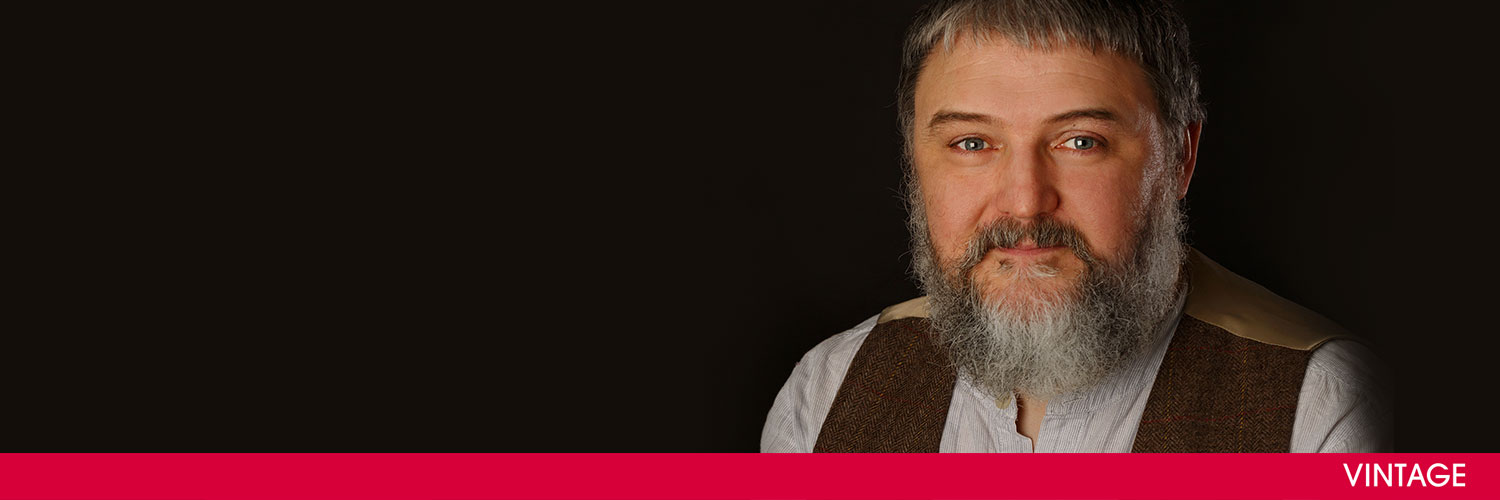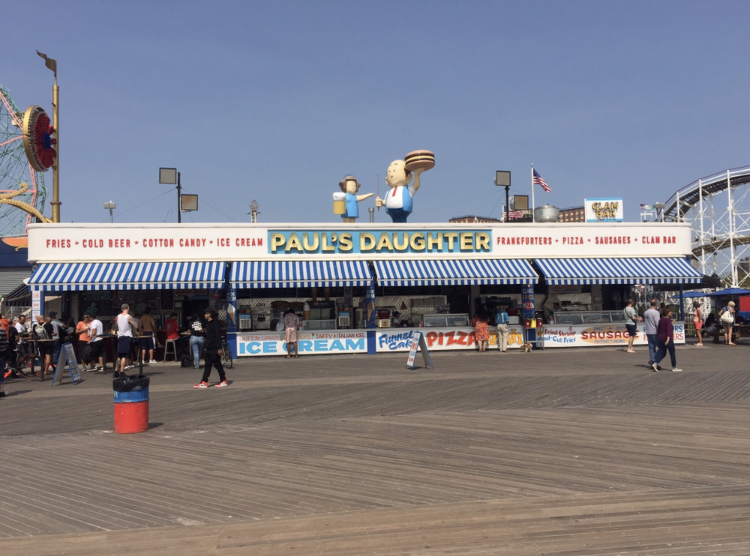- Home |
- Search Results |
- Billy O’Callaghan on how writing My Coney Island Baby changed the shape of grief
Billy O’Callaghan on how writing My Coney Island Baby changed the shape of grief
Irish writer Billy O’Callaghan is back with a devastatingly powerful new novel, My Coney Island Baby. Here Billy writes about the early loss of his brother, Richard, and how writing about it has changed the shape of his grief.


Within these pages I hope there’s beauty to be found, as well as hope, passion and empathy. But I know that there’s also loneliness, regret and grief, and the struggle to bear those deep losses that have to be lived with even when they can never quite be overcome.
I have often heard people say that writing is therapy. That may be so for some, but it was never that for me. I flush parts of myself and my own life through a fictional prism, not to heal but to gain a greater level of understanding. Since publishing my first short story nearly 20 years ago, the things that concern or haunt me, those troubles and dreads that keep me awake long into the night, tend to get worked out on the page. Themes form slowly from such thoughts. Some writers begin with plot or characters. For me, stories emerge from the fog of theme. It’s a vague, often blind process, but it’s become the only way I know. The writing doesn’t heal me, but it allows me to face issues I’d otherwise bury. And as someone who more often than not feels lost, the stories I write ground me, they help me to see how and where I fit in the world, and what the world really is. Michael, one of the two main characters in My Coney Island Baby, is Irish-born but has lived in New York for more than half his life. He and his wife are unhappy, and have been broken as a couple since the death of their only child, James Matthew, back in the early years of their marriage. It’s a grief that has lingered, a pain not easy bear much less to overcome.


From the beginning, Richard had some significant medical problems. Today, with the advances in medical science, and with the necessary surgery, he’d perhaps be saved, but things were different in 1979.
Now, Michael isn’t me, and the story of his life doesn’t mirror the story of mine, except in suggested ways. But the fictions I’ve written that have worked best were those that found their basis in a solid reality. A couple of lines from the Seamus Heaney poem, "Song", from his collection, Field Work, are always with me as a guiding hand when I am writing: '...that moment when the bird sings very close / To the music of what happens.' And since I’m already quoting Heaney, I’ll cite his poem, "Mid-Term Break," too, with its gut-wrenching '…four-foot box, a foot for every year.' A teacher read it to us in school, when I was about eight years old. Up until then, books to me were adventures, western shoot-em-ups or tales of piracy on the high seas, entertainments and fantasies; but "Mid-Term Break" was probably the first piece of literature that felt cut from the real world, the kind of world I knew, and it gave me, even at that age, a glimpse of what a poem or story could be. For the first four and a half years of my life I was an only child, and then my brother was born. From the beginning, Richard had some significant medical problems. Today, with the advances in medical science, and with the necessary surgery, he’d perhaps be saved, but things were different in 1979. He remained in hospital, in an incubator and attached to all manner of machinery, for several weeks, until finally, a couple of months on from his first taste of the world, his heart stopped beating and he breathed his last. No life at all, really, and no chance to make a mark, but he left a hole behind in his passing that wasn’t easily filled.

No life at all, really, and no chance to make a mark, but he left a hole behind in his passing that wasn’t easily filled.
I’m not sure precisely what I remember, because the reservoir of a childhood runs deep and wide, and just how much of what I hold onto from that time is actual and how much is imagined, or appropriated from other moments of other days, is probably open to conjecture. For sure, I can’t remember my brother, because he and I never had the chance to meet. And since we never even had a photograph of him I can only imagine his face, and how he might have looked at me or smiled in play. I don’t remember the moment of his dying, either, or even being told of it, but I do have a vague recollection of a funeral taking place, of it being a hidden, played-down thing, and too painful later to ever really speak of. What has stayed with me is the mood of that time, and if I think about it now I immediately see again my parents’ washed-out weariness and tight, staring silence, the pair of them trying to be strong, and not to break, and only nearly making it. The children’s hospital was in Crumlin, and as we hadn’t yet risen to the status of a car the only way to Dublin was by bus or train, and back again to Cork that same night, my father having to juggle shift work at the factory, my mother a shell of herself, probably not fully understanding what was happening. In such situations, you hold on to hope, I think, and close your eyes to the inevitable. I remember standing on a chair and gazing out of the window of our front room, watching for their evening return, while my grandmother sat by the fire, still only in her late fifties then but slight and frail, in poor enough health herself and already just three years from her own end. I remember the room, and the evening light, the sound of the fire, and her smile, small and sad, when I turned to her, and I remember us speaking to one another in murmurs even though there was nothing to have stopped us from shouting. Very little has ever been said in our family about Richard and the short spell of time that he was with us, because what good can it do? It’s the old way, I suppose, to push it aside and get on with surviving. When the others were born, my brother, Martin, a year and a half on from Richard’s death, and then some time later, my sister, Irene, he faded into the background. We haven’t marked his birthday, the 12th of February, the way we do with others, or his anniversary, which falls two days after my mother’s birthday, and we don’t often visit his grave, the piece of dirt that he shares with the grandparents he never met. Coming from a large extended family, and a close-knit one, death and funerals have always been a part of life. People sit, drink and tell stories, and mourn. But there’s something about a child’s death that asks a different response, and I think of it as that strangled, angry silence, when the throat aches with tears that won’t fall, and there is nothing that can help and nothing to be said.


. . . there’s something about a child’s death that asks a different response, and I think of it as that strangled, angry silence, when the throat aches with tears that won’t fall, and there is nothing that can help and nothing to be said.
But even if we don’t talk about him, we think of him often, even now, after all these years, and I know that he has shaped quite a bit of what I’ve written, and he is likely the reason for much of the melancholy that has defined some of my better work. Certain themes won’t let go of me, and one that has continued to fascinate is how people cope in the face of terrible and traumatic situations, how they find the strength to go on, and just how much of themselves they lose in the process. Because even though time does soften grief, it changes you, leaves you different. An odd thing happened, some years ago. I was in the early stages of writing this book, maybe six months or a year in, but hadn’t yet quite figured out what I was doing with it or what it was going to be. I woke early one morning and set to work, having seemingly, without even really giving it much thought, decided that Michael and his wife had lost their child. That was a missing piece, one that would explain other details within the story. That day I wrote for hours, and the scene came together in so concrete a way that I knew it was right and necessary. I’d rewrite it, of course, several more times, developing it and settling it into where I felt it needed to be in the text, but that was the day I started to really understand my characters, and the story they were trying to tell. It wasn’t until some weeks later, shuffling through a mess of notes and foolscap pages, that I realised the significance of that day, because of the date I’d scratched into one upper corner of the page (a habit I’d developed as the only way of keeping some order to my drafts): the 13th, one day shy of Valentine’s Day, one day on from Richard’s birthday.

Grief runs deep, and is often slow to fade, but it’s never quite forgotten, not really.
That the date meant nothing to me in the writing of it, that it brought nothing to mind, stirs feelings in me of shame and guilt, but the fact that I’d chosen this particular day to turn the story in its right direction suggests to me that I hadn’t forgotten after all, that he’d been in some part of my mind on the day before, and that I was simply doing what I always do, which is to take the things that trouble me and try to make sense of them in story form. We’re all of us more than we seem, there are whole subconscious oceans running just beneath our surfaces, and working to far greater depths. Grief runs deep, and is often slow to fade, but it’s never quite forgotten, not really.
Sign up to the VINTAGE Books newsletter
By signing up, I confirm that I'm over 16. To find out what personal data we collect and how we use it, please visit our Privacy Policy.